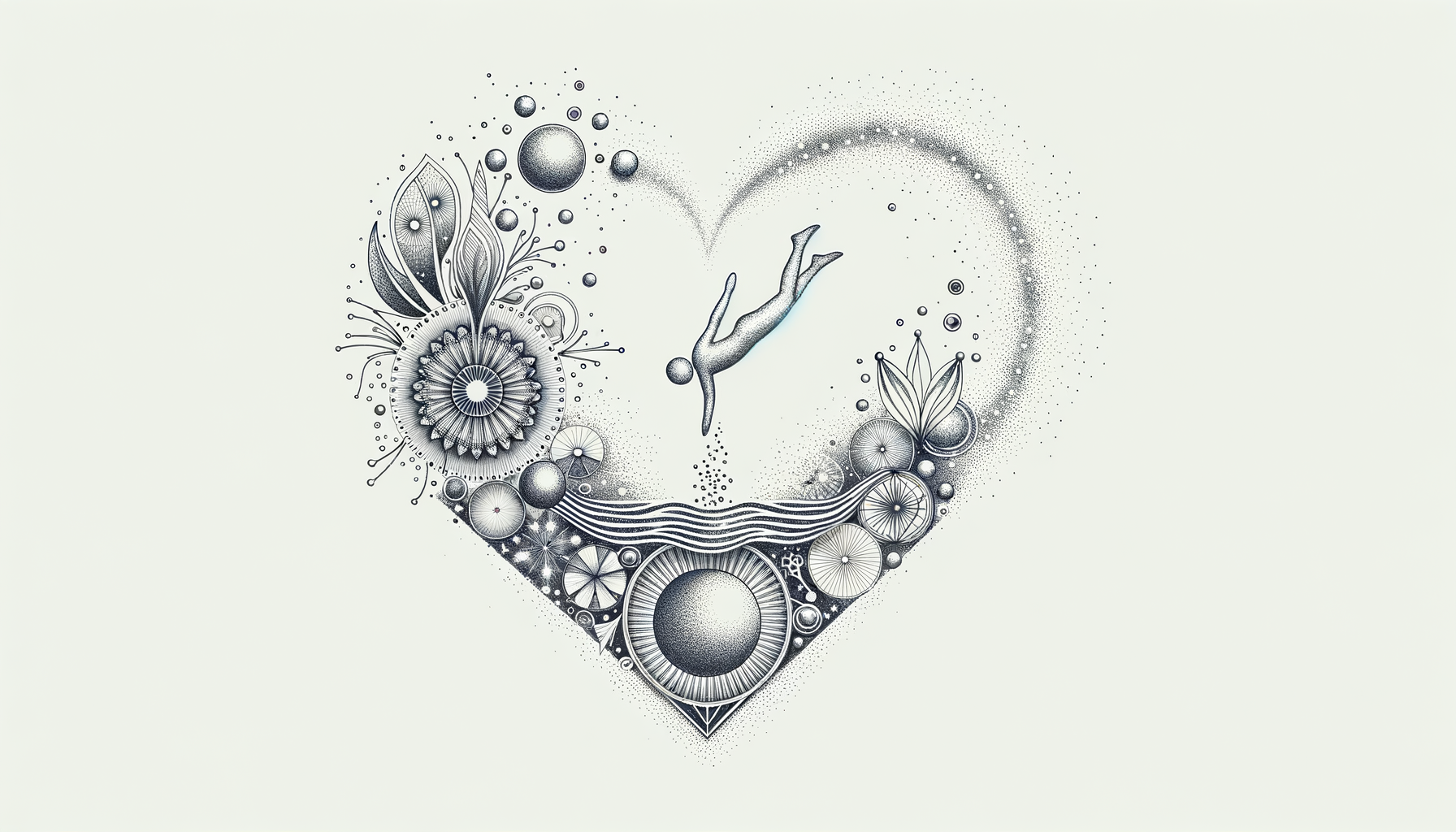“Write what you know,” they said. “It’ll be easy,” they said. And yet here I am, staring at a blinking cursor, trying to describe the hardest piece I’ve ever written. You’d think this task would feel like an old friend. After all, I’ve spun intricate tales featuring storm-tossed ships and family feuds tangled tighter than a fisherman's knot. So, what made this particular piece so hard?
Let’s set the stage: one crisp April day, as the last of Maine’s snow grudgingly melted, I was tasked with something completely outside my wheelhouse—crafting a feature about what it means to open yourself up to love after heartbreak. Oh, and it was due in a week. No big deal, right? Wrong. The writer in me balked. The human in me quaked. I wasn’t just writing about a concept; I was dragging my own weary heart across the page, exposing scars that were less "healed over" and more "held together with duct tape and a prayer."
But it turns out that the hardest pieces to write are the ones that teach you the most.
Facing the Beast: There's No Hiding From Your Own Feelings
Here’s the truth about writing anything remotely personal: it’s terrifying. Picture walking barefoot on a New England beach in April—invigorating at first and then ice-cold reality sets in. I thought I’d be able to skate through this article with a bit of research and some light-hearted quips. Turns out, when you're writing about rediscovering love, you can’t fake it. Someone else might try and pass off hollow metaphors, but authenticity was the assignment here.
My editor encouraged me to dig deep. “Write about what it’s like to carry the weight of past relationships while building something new," she said. I groaned. I muttered something salty under my breath. And then I wrestled with feelings I had expertly buried, the kind you stash away in the mental equivalent of your grandmother’s attic—out of sight, out of mind, until someone insists the old trunk has to go downstairs.
I thought of a relationship that ended one July, right after the fireworks had faded and people were once again staring blankly at their phones instead of the night sky. He and I had been mismatched—like trying to plug a USB cable in the wrong way three times before realizing it’s not even the right cable. Our split was necessary but not without the kind of sting that makes you question future possibilities.
That summer, I found solace in small, familiar routines: watching the sunrise from Cape Porpoise pier and listening to Billie Holiday on repeat. While most of my heart eventually healed, this article made me realize I’d been tiptoeing around those last jagged edges. Writing forced me to confront the remaining doubts—what if those moments of joy, however imperfect, were as good as it gets?
Lessons From the Sea: Change Is Inevitable
This wasn’t the first time something hard and unexpected had shaped my outlook. Growing up along the Maine coast, you learn to respect change the way you respect high tide. Storms come—sometimes fast, sometimes unapologetically slow—and they alter the shoreline. Beaches shift. Treasure is unearthed. The process isn’t neat or pleasant, but there’s beauty in the transformation.
So I approached this article the way I might approach the aftermath of a nor’easter: methodically, with equal parts caution and curiosity. One section explored what it means to let go of bitterness and make room for new beginnings. This was no easy feat for someone who once mailed back an ex’s collection of jazz LPs one-by-one just to draw out the breakup drama (don’t judge me; we were all 22 once).
I’ll admit, reliving the past was a bit like pulling lobster traps that got stuck on the ocean floor. It took effort, precision, and no small amount of heavy lifting. But confronting those ghostly memories taught me some valuable lessons, most of which made their way into the piece.
Here’s what I boiled it down to:
- Embrace Imperfection: No partner, and certainly no relationship, will check every box on your perfect-list. Think of love like chowder—hearty, a little messy, and sometimes needing extra salt. The key is finding someone whose flaws are endearing rather than maddening.
- Be Willing to Lose the Map: You can plan, you can plot, but relationships are dynamic. Learning to let go of strict expectations feels like setting anchor in unknown waters, nerve-wracking yet freeing.
- Relearn Yourself First: The best thing I did post-heartbreak wasn’t rushing to a new relationship but rediscovering what I loved about me. (Insert romantic walks along Kennebunkport and one particularly indulgent summer of lobster rolls here.)
The Hardest (and Happiest) Surprise
Eventually, the piece was finished, and I hit "send" on the email to my editor. By then, I’d learned a thing or two about opening yourself up to vulnerability—for better or worse.
A week later, I received a response in my inbox. The article had struck a chord, not just with my editor but with our readers, too. Some of the comments poured in with startling honesty: a woman confessing how my piece had spurred her to text an estranged ex with a kind note, a single dad admitting he’d spent years shielding his heart simply out of fear.
And there I was, sitting in my little writing nook, staring out at the Atlantic, feeling more threadbare and fulfilled than ever. The hardest piece I’d written wasn’t just challenging because it demanded self-reflection—it was challenging because it required me to take my own advice.
Writing it reminded me that growth, both in life and in love, often happens when we dive into the deep end. Sure, it’s uncomfortable at first—saltwater in the nose and all—but eventually, you find that you’re treading water just fine.
Your Turn to Brave the Tide
Listen, putting yourself out in the world, whether it’s through relationships or personal growth, can feel daunting. But here’s the thing—when has staying in calm, shallow waters ever led to a grand adventure?
There’s courage in stepping beyond old heartbreaks and opening yourself up to something (or someone) new. Maybe that means reengaging in difficult conversations. Maybe it’s forgiving yourself for holding on too tightly to something that was destined to drift away.
Whatever it looks like, know this: the hardest stories are often the most worthwhile. Start small. Start scared. Just start. You’ll find more treasure than you ever thought you would.




















